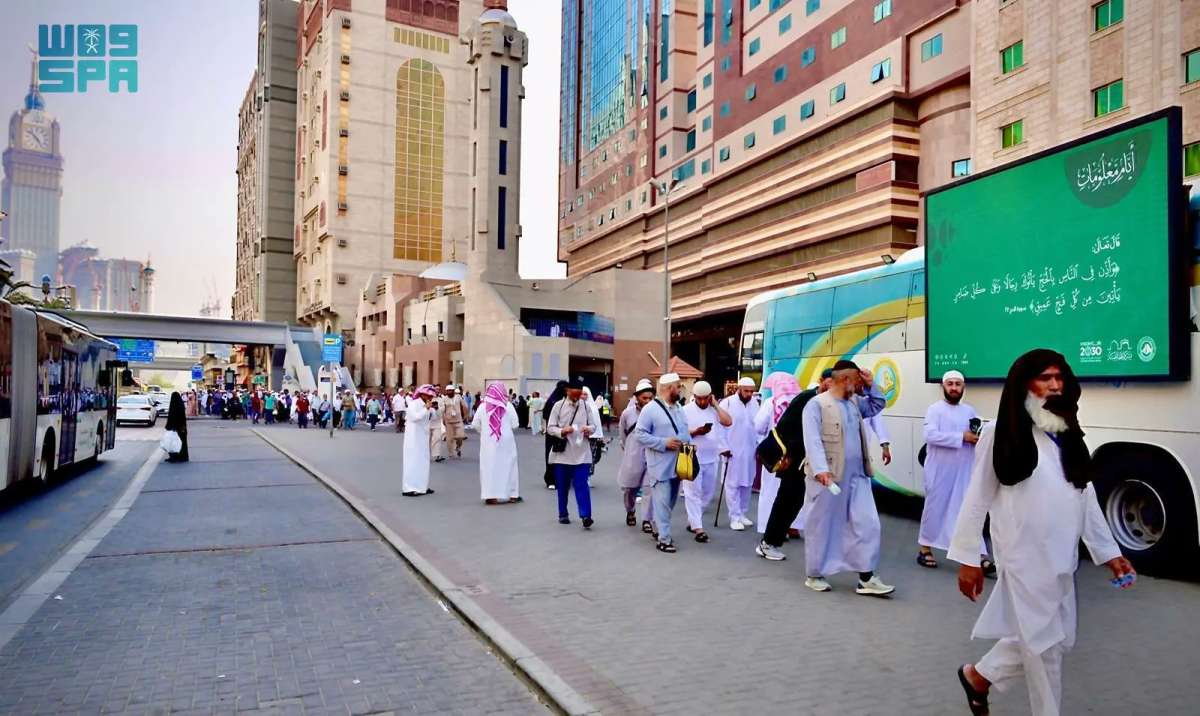A breakdown of the arrival data revealed that 1,483,312 pilgrims arrived via air, while 59,273 pilgrims entered through land ports. Sea ports received a total of 4,710 pilgrims….reports Asian Lite News
Saudi Arabia’s General Directorate of Passports announced that around 1.55 million pilgrims have arrived in the Kingdom for the Hajj season of 1445 AH. This figure comprises all pilgrims entering the Kingdom through air, land, and seaports until the end of Monday, 4th of Dhu Al-Hijjah 1445 AH (10th June, 2024), Saudi Press Agency (SPA) reported on Wednesday.
A breakdown of the arrival data revealed that 1,483,312 pilgrims arrived via air, while 59,273 pilgrims entered through land ports. Sea ports received a total of 4,710 pilgrims.

The directorate emphasised its commitment to facilitating the entry process for all pilgrims. The authorities have deployed the latest technologies at international ports alongside a team of highly qualified multilingual personnel to ensure a smooth experience for pilgrims.
Animal sacrifice
Meanwhile, Saudi authorities have taken all measures to ensure that sacrificial animals offered to Hajj pilgrims are healthy and safe.
The Makkah region branch of the National Centre for the Prevention and Control of Plant Pests and Animal Diseases (Weqaa) has inspected around 400,000 heads of livestock before their entry into Makkah. This inspection took place from 23rd May 2024, to 9th June, 2024, to ensure the animals are healthy and free from contagious diseases for the Hajj season.
Director-General of Weqaa’s Makkah branch Dr. Ghaleb Al-Saedi highlighted that all imported and local livestock undergo daily physical inspection by epidemic disease control teams. These teams are supervised by the branch’s animal health department.
Al-Saedi added that the teams also investigate animal diseases in importers’ pens, issue health certificates for healthy livestock, and promptly isolate any suspected cases. Furthermore, the epidemic disease control teams continue their inspections and issue necessary clearances at the entry points surrounding Makkah city.
The efforts of the field teams have resulted in the clearance of nearly 400,000 livestock for entry into Makkah. Additionally, they have conducted 1,591 rounds of disease vector surveillance and control, along with 403 rounds of monitoring in markets and slaughterhouses.
ALSO READ: UAE genome project makes significant strides

